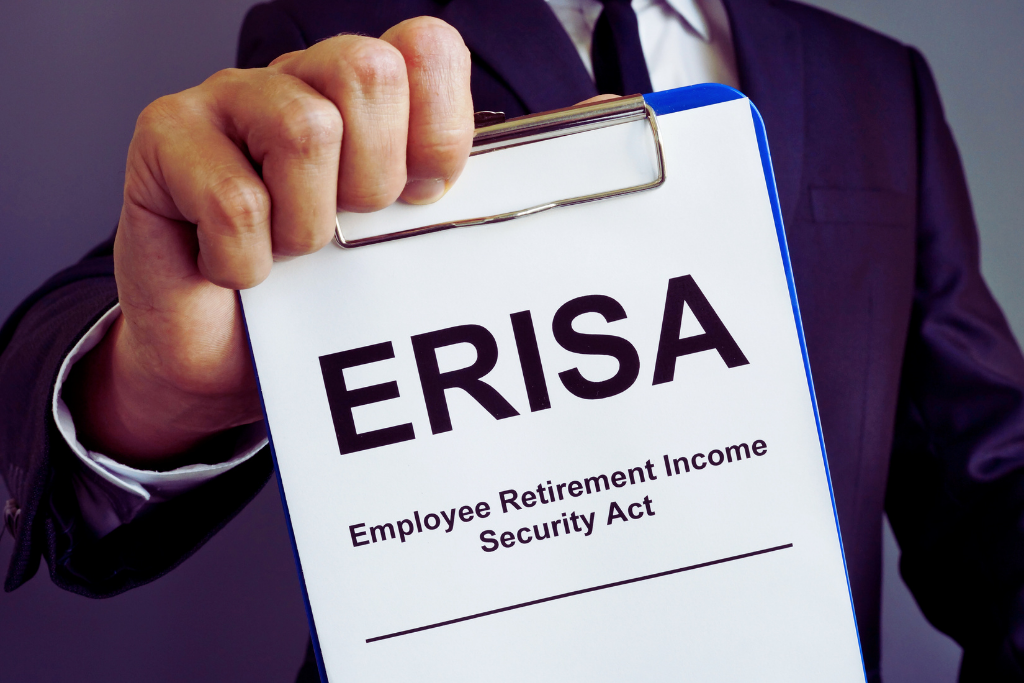How To Appeal A Denied Disability Claim
“While so many other attorneys treated me as “just another case,” Bill went WAY above and beyond to educate me and most importantly advocate for me. He invested the time I needed and I’ll forever be grateful for his services and support.”
JS M
Contact us for a free case evaluation
By submitting my data I agree to be contacted
TABLE OF CONTENTS
- UNDERSTANDING ERISA DISABILITY CLAIMS
- WHY CERTAIN DISABILITY CLAIMS GET DENIED
- STEPS TO TAKE WHEN YOUR DISABILITY CLAIM IS DENIED
- HOW TO DETERMINE IF YOUR DISABILITY CLAIM HAS BEEN WRONGFULLY DENIED
- BENEFITS OF HIRING AN ERISA ATTORNEY APPEAL YOUR DENIED CLAIM
- WHAT ARE YOUR OPTIONS IF YOUR APPEAL IS UNSUCCESSFUL?
- CONTACT OUR ERISA DISPUTE LAWYERS
WHAT HAPPENED?
Are you facing financial hardship due to a denied disability claim? Have your numerous attempts to understand the process, leaving you feeling desperate and hopeless? If so, it’s time to take action. No matter what the insurance company tells you, appealing a disability claim denial is a complex process that requires diligence, dedication, and a deep understanding of both the medical and vocational aspects of disability.
If you have a disability-related dispute that requires legal assistance, contact the experienced attorneys at Herman & Wells. Our lawyers have years of experience in successfully handling cases involving denied disability claims and we understand what it takes to win an appeal! Contact our office today to schedule a consultation.
THE CLIFF NOTES
Get the key takeaways from this page
THE CLIFF NOTES
Get the key takeaways from this page

- Denied disability claim appeals can be a complex and lengthy process.
- ERISA, or the Employee Retirement Income Security Act of 1974, is federal law that governs employer-sponsored retirement and health benefit plans.
- To most successfully appeal a denied claim, ensure you have the right legal representation on your side.
- Common complications in the claims process include misinterpretation of policy provisions, requests for additional medical records, failure to consider medical evidence and improperly denying a claim based on certain criteria.
- Missing filing deadlines or submitting the wrong paperwork can contribute to denied claims.
- Consulting an experienced disability attorney may significantly increase the chance of success in filing an appeal.
- Lawsuits against insurance companies may be possible if all appeals are unsuccessful.
- Herman & Wells specialized attorneys have years of experience successfully handling cases involving denied disability claims.
UNDERSTANDING ERISA DISABILITY CLAIMS
The Employee Retirement Income Security Act (ERISA) of 1974 is a federal law that governs the administration of employer-sponsored retirement and health benefit plans.

It also provides certain legal protections to those receiving disability benefits through their company’s plan. When an employee files a claim for disability benefits, the plan must provide specific information regarding its eligibility requirements and the appeals process.
How Disability Claims Are Typically Handled
If your employer has an ERISA-governed plan and you make a disability claim, the insurance carrier will typically require you to file an appeal within 180 days of receiving the denial letter.
If your claim is denied again after filing an appeal, then you may be able to pursue litigation in federal court. This can be a complex and lengthy process, so it is important to make sure you have the right legal representation on your side.
Complications That Can Arise During The Disability Claims Process
The disability claims process can be confusing and frustrating. It is important to understand that the insurance company or government health benefits program has the ultimate authority to make decisions on your claim. As a result, it is quite common for denied appeals to occur. In addition, there are other complications that can arise such as delays in processing paperwork or errors in the calculation of benefits such as:
- Misinterpretation of policy provisions;
- Requests for additional medical records or proof of disability that aren’t properly documented;
- Failure to consider relevant medical evidence;
- Improperly denying the claim based on certain criteria.
WHY CERTAIN DISABILITY CLAIMS GET DENIED
When considering a disability claim in Florida, it is important to be aware of why certain claims may be denied:
Filing The Wrong Paperwork
Filing the wrong paperwork or missing key information on an application can be a common reason for denied disability benefits. When submitting an application, make sure to provide all necessary documents and information to avoid any potential complications.
Missing Critical Submission Deadlines
Submitting the necessary documents and paperwork on time is also essential to successfully appealing a denied disability claim. Be sure to note all deadlines and submit all information before it’s too late!
Missing Medical Records That Establish Your Disability
For a disability claim to be approved, you must provide sufficient medical evidence that establishes your disability. Be sure to submit all necessary medical records to the insurance company yourself and don’t depend on the insurance company to get your records. Also, submit any other supporting documents to make the most robust case possible.
STEPS TO TAKE WHEN YOUR DISABILITY CLAIM IS DENIED
If your disability claim is denied, it is important to take action right away. Here are a few steps you should take.
STEPS TO TAKE WHEN YOUR DISABILITY CLAIM IS DENIED
If your disability claim is denied, it is important to take action right away. Here are a few steps you should take.
- Contact an experienced disability attorney who can help you understand your rights and guide you through the appeals process.
- Request a copy of your denial letter from the insurance company or government health benefits program so that you can review the reasons for your denial.
What To Look For When Reviewing The Denial Letter
When reviewing the denial letter, pay close attention to any references to policy provisions or legal standards that were not met for your claim to be approved like applicable time limits or medical evidence requirements.
This will give you a better understanding of what is needed for you to be successful in appealing the decision.
Should You Contact The Insurance Company Directly?
We understand that you may be frustrated with the denial of your claim and want to take action right away. However, as mentioned earlier, the insurance company has ultimate authority over your case.
As a result, contacting them directly about a denied disability claim may not always be the most effective route in resolving the issue.

Instead, you should consider hiring a disability attorney with experience in the appeals process who can handle your claim on your behalf.
Appealing a claim on your own is not an easy process no matter what the insurance company tells you and you may ultimately end up doing more harm than good appealing on your own.
HOW TO DETERMINE IF YOUR DISABILITY CLAIM HAS BEEN WRONGFULLY DENIED
If you believe that your disability claim has been wrongfully denied, there are a couple of steps you can take to determine if this is the case.
Talk To An ERISA Attorney
The first step to take is to talk to an experienced ERISA attorney. An attorney can help you better understand your rights and advise you on the best approach for appealing the denial of your claim. An experienced ERISA attorney has seen countless disability claims and denial letters, so they can help you determine if your case is being handled correctly or not.
BENEFITS OF HIRING AN ERISA ATTORNEY APPEAL YOUR DENIED CLAIM
While it is possible to file an appeal on your own, the appeals process can be complicated and confusing. The insurance company wants you to file an appeal on your own as most people end up not submitting the proper evidence and hurting their case. Hiring a disability attorney experienced in ERISA appeals can make all the difference in getting your claim approved. An attorney will ensure that all required paperwork is properly filled out and submitted and provide legal counsel throughout the process.
WHAT ARE YOUR OPTIONS IF YOUR APPEAL IS UNSUCCESSFUL?
If your appeal is unsuccessful, you still have options.
Can You Still Sue The Insurance Company?
It depends. Some policies make you file two appeals before you can file suit. Once the final appeal is denied, you can still file a lawsuit against the insurance company if you believe your disability claim appeal was wrongfully denied.
CONTACT OUR ERISA DISPUTE LAWYERS
Overall, if you believe that your disability claim has been wrongfully denied it is important to take the necessary steps to determine and evaluate the strength of your case. You should seriously consider hiring an ERISA attorney to help guide you through the appeals process.
Don’t do this alone – call (727) 821-3195 for a free consultation today!
CONTACT OUR ERISA DISPUTE LAWYERS
Overall, if you believe that your disability claim has been wrongfully denied it is important to take the necessary steps to determine and evaluate the strength of your case. You should seriously consider hiring an ERISA attorney to help guide you through the appeals process.
Don’t do this alone – call (727) 821-3195 for a free consultation today!
By submitting my data I agree to be contacted

